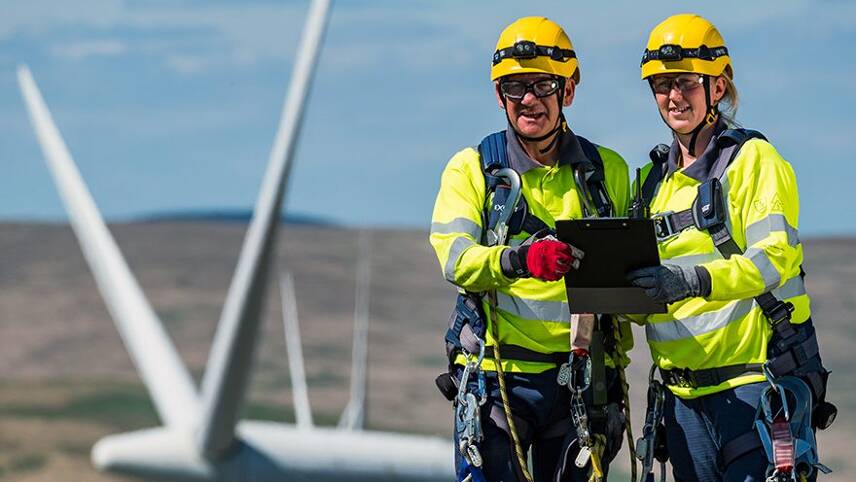Register for free and continue reading
Join our growing army of changemakers and get unlimited access to our premium content

Image: Stuart Nicol photography for SSE
Spearheaded by SSE, the new ‘Powering Net-Zero Pact’ is also being supported by wind turbine firm Vestas; power cable supplier NKT; offshore energy solutions provider DEME Group; Subsea 7; Hitachi Energy; Siemens Energy; Siemens Gamesa; Balfour Beatty and civil engineering contractor RJ McLeod. Collectively, these businesses employ more than 240,000 people and generate turnover exceeding £55bn each year. SSE has called the initiative a “coalition of the willing”.
Members of the pact are required to meet commitments around reducing emissions, protecting nature, adding value to local communities, guaranteeing fair work and adopting circular economy principles.
On reducing emissions, membership in the Pact will require the development of net-zero targets for 2050 at the latest, covering all emissions scopes. These must be supported by verified science-based targets that are aligned with 1.5C. SSE recently strengthened its science-based targets so they align with the Science-Based Targets Initiative’s (SBTi) 1.5C pathway rather than its “well-below 2C” pathway, which is being phased out in the coming years. Several other Pact signatories have also already set 1.5C targets under the SBTi.
The social sustainability commitments included in the Pact require participants to guarantee fair work practices, including living wages and the freedom for employees to associate with unions and other external groups. Participants have also committed to better identifying and minimising human rights risks across their global networks – a widespread issue for many global corporates in most major sectors.
There are, additionally, commitments to protecting and restoring nature, promoting circular economy principles and supporting local communities across operations and supply chains.
By 2025, businesses participating in the Pact will need to publicly disclose their water use and their impact on air quality and biodiversity. They will also need to develop plans for reducing negative impacts in these areas and reaching net positivity where possible.
Also by 2025, the businesses will need to set a waste reduction target. Beyond simply avoiding landfill and boosting recycling, they will need to strive to design out waste by innovating with production and construction methods and materials.
On adding value to local communities, the businesses will need to set new common responsibility principles within the next three years. Principles will be drawn up for developers, constructors and operators.
These focus areas draw on learnings from SSE’s own ‘Just Transition’ plan, which was first published in November 2020. It was one of the first in the UK’s energy industry to outline plans to protect and empower workers and communities amid the net-zero transition. From 2023, the UK Government will mandate the production of net-zero transition plans from large firms in high-carbon sectors.
SSE’s chief executive Alistair Phillips-Davies said: “The climate emergency and the need to secure more stable and affordable energy supplies have accelerated the transition to a low-carbon future – but as we are all swept-up in the race to net-zero we have a duty of care to ensure no one is left behind, and not just in our own operations.
“Collaboration will be key to achieving the best possible impact [in terms of] lowering emissions and supporting the natural environment whilst ensuring the mistakes of past industrial transformations aren’t repeated.”
The launch of the Pact comes shortly after the Government confirmed plans to bring forward a new Energy Bill during the 2022 – 2023 parliamentary session. That confirmation was given in the Queen’s Speech on Tuesday (10 May).


Please login or Register to leave a comment.